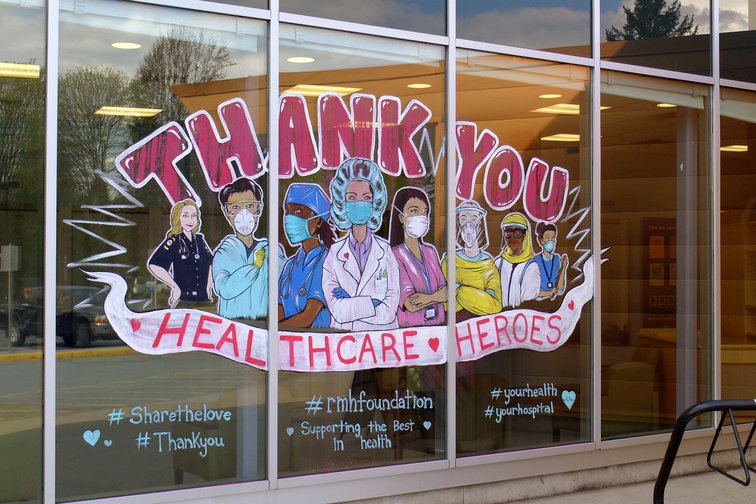
In Canada, non-status women are being left behind
Non-status women remain largely invisible in the COVID-19 public health response and emergency support programs.
by Salina Abji, Margarita Pintin-Perez, Rupaleem Bhuyan
Canadians have been quick to celebrate essential workers on the frontlines of the COVID-19 pandemic. However, few have acknowledged the role of non-status women who are among the cleaners, personal support workers, domestic workers and cashiers who are putting their lives at risk to keep us safe.
Indeed, long before coronavirus entered our lexicon, migrant women living without legal status faced acute social, economic and health risks due to lack of access to healthcare, poor working conditions, employer abuse and exploitation, and the stress of living in constant fear of deportation. The current crisis has only exacerbated these conditions, yet non-status women remain largely invisible in the public health response and emergency support programs.
Gaping holes in Canada’s social safety net
While the Canadian government has introduced new measures to support those facing financial strain from COVID-19, the requirement of a valid Social Insurance Number (SIN) excludes undocumented migrants from receiving critical income support. For women who are undocumented, this exclusion exacerbates existing gender inequalities: women are more likely to live in poverty; 80% of lone-parent households are headed by women; and migrant women are more likely to enter Canada as dependents compared to men.
Join the COVID-19 DemocracyWatch email list
Sign up for our global round-up of attacks on democracy during the coronavirus pandemic.
Lack of access to emergency income supports, such as the Canada Emergency Response Benefits and the Canada Child Benefit, are leaving behind already-vulnerable people desperate to find shelter, food, and healthcare. For non-status women working on the front-lines of the pandemic, this exclusion from emergency relief intensifies pre-existing issues of poor working conditions, lack of paid sick leave, and low pay, and many are at heightened risk of contracting COVID-19 due to working without adequate protection. Anti-Asian racism further compounds risks for migrant workers who face discrimination and increased violence. Moreover, loss of income can also have a ripple effect on non-status women leading to loss of housing, food insecurity, and for women parenting young children, risk of investigation for child maltreatment and neglect.
A gender-based violence pandemic
The COVID-19 pandemic has heightened the pre-existing crisis of gender-based violence worldwide. Universal measures which require social distancing and staying home assume the home is a safe place. As isolation is a key tactic used by abusers, stay at home measures increase the risk and inescapability of gender-based violence: when women and children are confined with abusive family members or are unable to connect with their support networks, this intensifies an abuser’s control over their victims.
For non-status women in particular, fear of deportation is used as a tool of power and control by abusers and may prevent women from coming forward to report violence. In addition to domestic violence, non-status women also face increased risks of violence at the hands of employers, landlords, extended family members and others who may threaten to report them to border authorities.
In response to increased risks of gender-based violence under COVID-19 measures, the Canadian government announced $30 million to address immediate needs of shelters and sexual assault centres. These response measures must be accessible to victims regardless of their immigration status, which means loosening eligibility restrictions and implementing “access without fear” policies across all agencies that survivors may turn to for support.
Efforts to curb alarming rates of gender-based violence must also take seriously the impacts of bordering practices on victims of violence. Although the Canada Border Service Agency temporarily halted deportations and scheduled removals due to restrictions on international travel, Canada should follow Portugal’s lead by granting permanent residence to those who have a pending immigration application including non-status women who have applied for a Temporary Resident Permits (TRP) or Humanitarian & Compassionate (H&C) application for victims of family violence, victims of trafficking, and temporary foreign workers who are abused by their employer.
Building a society that protects our collective well-being
Migrant Rights Network, the Rights of Non-Status Women Network, and other grassroots groups have called for increased funding to alleviate the humanitarian crisis faced by non-status people under COVID-19, including migrant women experiencing violence and unsafe working conditions. To flatten the curve, this must include funding for emergency housing, shelter, food, health care, universal childcare, and legal services to assist non-status women to regularize their status.
Recent measures in Ontario to extend emergency healthcare to uninsured populations and which remove the 3-month wait period for new residents show that where there is political will, universal and equitable access is possible. We need a comprehensive response that ensures that all human beings have access to the basic necessities of life, because if nothing else, this virus has shown us that our collective fates are inextricably tied. Indeed, what this pandemic is provoking is an urgent need to consider the consequences of pervasive and historic social inequality in Canada, with non-status women among the most vulnerable and least protected.